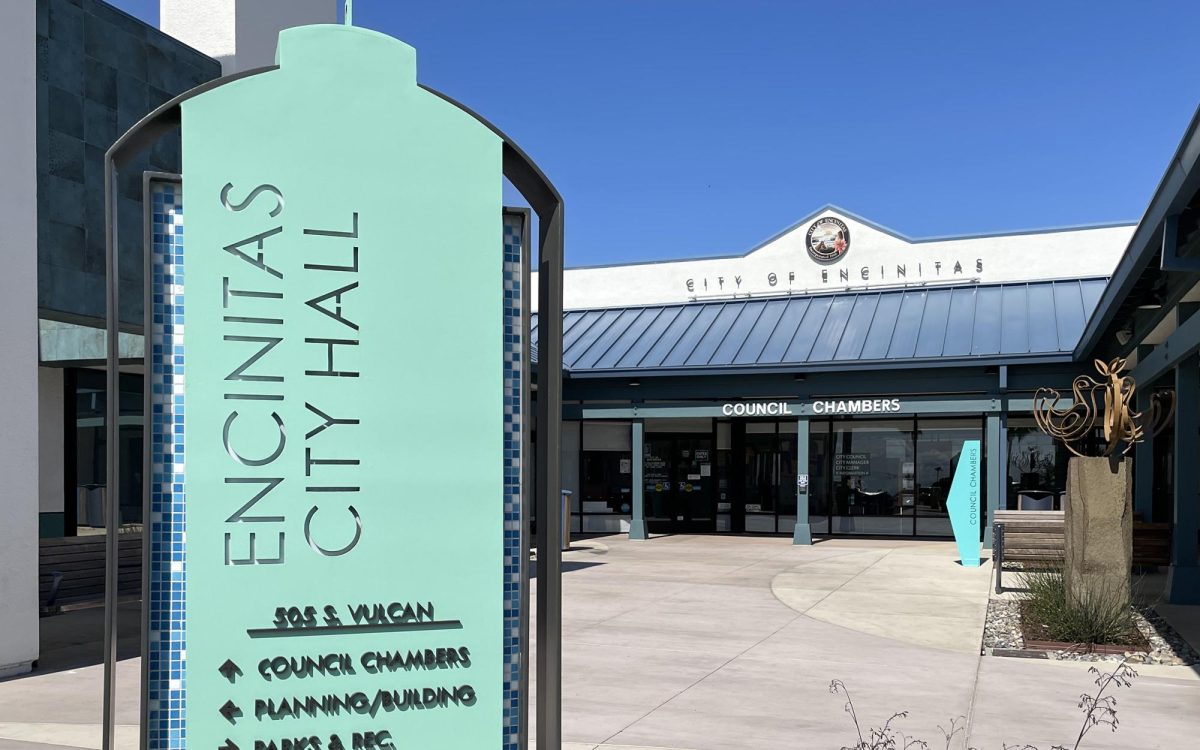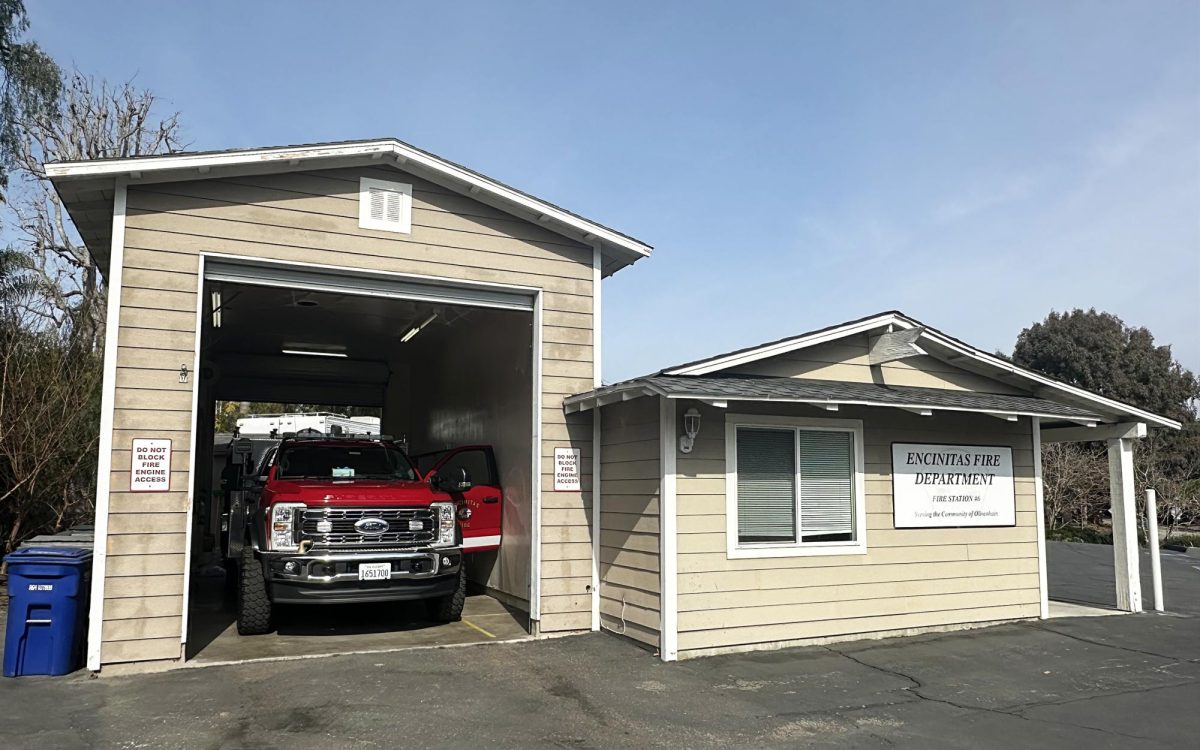A heated and spirited debate took hold during the Encinitas City Council’s meeting on Wednesday, Jan. 17, regarding the city’s Barriers to Racial and Ethnic Equity in Housing Study.
The 91-page report by Opportunity Consulting reviewed the city’s housing and racial breakdowns and presented six findings and 10 recommendations. However, the council directed staff to gather more information on eight of the 10 recommendations with the council opting to pass on hiring a Diversity, Equity and Inclusion manager.
The council also directed staff to present the item to the Public Health and Safety and Senior commissions before it returns to the council.
The report centers on why the city has such a large White population (80%) and why other racial and ethnic backgrounds don’t live in Encinitas. It also touches on the lack of affordable housing and program barriers to more easily assist lower-income residents.
Many residents, meanwhile, railed against the study with claims of it being biased, recommendations for duplicating laws, attacking Proposition A, the consultant for incendiary social media posts and allegations of racism, to name a few. Others, though, applauded the study, saying the city must address its lack of diversity in its population and find ways to lower housing costs and rent, and to help low-income residents navigate a complex process.
The study was requested by the California Department of Housing and Community Development, according to Joel Cvetko, associate planner. The study was required to complete approval of the city’s Housing Element, Mayor Tony Kranz said.
“The purpose is to better understand and address disparities within the Encinitas housing landscape,” he added. “The housing market is less racially and economically diverse. The BIPOC community is clustered in certain parts of the city. There are policies in place that create barriers to developing more multi-family units.”

The study was conducted in May 2022 with 129 responses and 21 interviews with stakeholders and a community survey in October 2023 with 278 responses. The report found a less racially and economically diverse city, policies in place creating barriers, a lack of affordable housing, public transit constraints, and private sector practices and incentives contributing to displacement.
For those people of color and why they don’t live in Encinitas, 56.25% preferred their current location, 50% said it was the high cost of living and the remainder said “location” as their reason.
Residents also questioned the 129 responses via a Public Records Act request, which showed about half of the respondents donated to Kranz’s campaign, according to one speaker.
Several residents pointed to the council and city as problems as they drive policy, sued its residents twice over Prop. A, and have sold low-income homes to investors rather than residents, as first reported by The Coast News. Additionally, some residents pointed to a comment in the report, which says, “It’s important to note neither of the two surveys were not intended to be statistically or scientifically significant.”
Those residents questioned if the report wasn’t meant to be significant, how could the council make policy decisions based on the study.
The council grappled with the 10 recommendations and the next steps. One is enacting Just Cause Eviction policies as other cities have done, engaging landlords about housing choice vouchers, developing an outreach plan and engaging the San Diego Housing Commission about changes to the county’s first-time homebuyer program, to name a few.
“There are some valid recommendations,” Councilwoman Allison Blackwell said. “Our city is racially and ethnically different than some other cities around us. I want to know why. The only way to increase diversity … is to have policies in place that make a difference.”
Councilman Bruce Ehlers ripped the report for being speculative and jumping to conclusions. He also railed against the claims that Prop. A is a barrier to housing. In 2013, voters approved Prop. A, which requires a public vote when publicly or privately initiated changes are proposed to planning policy documents (the General Plan, specific plans or zoning ordinance) that increase the currently allowed intensity or density of development.
The report also states most of the city’s minority population lives between El Camino Real and Interstate 5. It also cited some examples from decades ago as evidence of discrimination.
“Wow, where is the evidence?” Ehlers asked about Prop. A. “There is zero evidence of barriers before Prop. A and after. It says the BIPOC community is concentrated between I-5 and El Camino. That’s one-third of the city. And then it says how White we are. If there are illegal practices going on violating the Fair Housing Act, where are they listed in this report?”
Residents also railed against the consultant’s chief executive officer, Iris Bond-Gil, and controversial social media posts about race and White people, Black men and those who are politically conservative. Residents questioned why Bond-Gil’s firm was hired when other firms had lower bids.
Some theorized Bond-Gil was tapped due to a possible personal connection to Mali Woods-Drake, who sits on the city’s Public Health and Safety Commission and was able to convince the city to create the Encinitas Equity Committee, which she also served on. Both women attended Arizona State University, but it was unclear regarding any other connection.
Additionally, some residents called out the council and the city for signing a contract extension with the consultant before work was completed. However, Mayor Tony Kranz said the city was notified before the meeting of Opportunity Consulting terminating its contract. No representatives for the firm attended the meeting.
Regardless, Kranz said the issue was sidetracked by DEI, noting the DEI discussion is raging across the country.
“Some DEI programs missed the mark,” he added. “Some have been good. I want Encinitas to be diverse, have an abundance of equity and be inclusive. Encinitas has always been very White. The people of color here were mostly Mexican-Americans … in the agriculture industry. They taught me what it was like.”
However, Kranz said one element he fully supports is streamlining the affordable housing process for residents. He also supported many of the findings and recommendations, although said it wasn’t the right time to hire a DEI manager.
Councilwoman Joy Lyndes apologized if the report alienated residents and said she wants to focus on housing and how the city can bring a positive impact. She said her focus is on three elements, which include protecting the current affordable housing, preservation of stable rents and production of affordable housing.
Lyndes cited a project of the city providing 100% affordable housing on public land as one example.
“There are many things on this list of 10 recommendations we are already doing,” she added. “We already have No. 3, the housing voucher. We need to help people navigate the programs.”
This story was first published in North County Pipeline, a news outlet managed by local journalist Steve Puterski.







